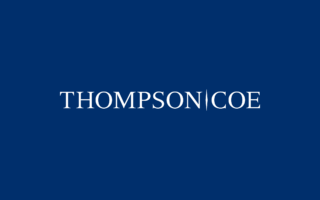Houston Partner Obtains Affirmation of Death-Penalty Sanctions from 14th Court of Appeals
Aug 29, 2018
Houston Partner Andrew Johnson obtained affirmation from the Fourteenth Court of Appeals of death-penalty sanctions in a legal malpractice case in which the plaintiff fabricated documents to create damages that did not exist. The Court of Appeals recognized that, while death-penalty sanctions are reserved for “all but the most egregious and exceptional cases,” the plaintiff’s serious malfeasance rose to such level.
In this breach-of-fiduciary-duty case, the plaintiff sued his former attorney, alleging that the publicity the attorney garnered for the plaintiff’s underlying health-care-liability claim against a fertility clinic caused him to lose a lucrative employment opportunity.
In order to try and support his damages theory, the plaintiff falsified job application documents so that it appeared he would have obtained a high-paying job but was rejected because of the publicity he received in the underlying suit. When his fraudulent scheme was brought to light, the plaintiff compounded his trouble by giving incredible explanations for the falsification that the trial court found “defy credibility.”
The trial court concluded that merely striking the evidence would be an insufficient sanction because it would deprive the defendant of the opportunity to use the fabricated evidence to impeach the plaintiff’s credibility and would simply restore the plaintiff to the same position he would have occupied had he not fabricated evidence. The trial court therefore issued “death-penalty sanctions” by striking the plaintiff’s pleadings and rendering a take-nothing judgment against him.
On appeal, the plaintiff argued that the trial court abused its discretion in imposing death-penalty sanctions because (1) there was no finding that the evidence was intentionally fabricated, (2) the trial court failed to adequately consider lesser sanctions that would have sufficed, and (3) the fabricated document was unrelated to the core elements of the plaintiff’s claim.
In a 22-page opinion, the Court of Appeals thoroughly rejected each of these arguments, holding that (1) the trial court expressly found that the plaintiff had fraudulently created evidence, (2) the trial court carefully considered whether lesser sanctions would work, and explained why they would not, and (3) the plaintiff’s fabrication of documents goes directly to the heart of his claim, which even the plaintiff’s attorney admitted during the sanctions hearing. Accordingly, the Court of Appeals upheld the trial court’s sanctions.
The case is Joseph Pressil v. Jason A. Gibson et al., case number 14-17-00517-CV, in the Texas Court of Appeals for the Fourteenth District.
Andrew Johnson was elected to the 1st Court of Appeals and joined the bench in January 2025.






